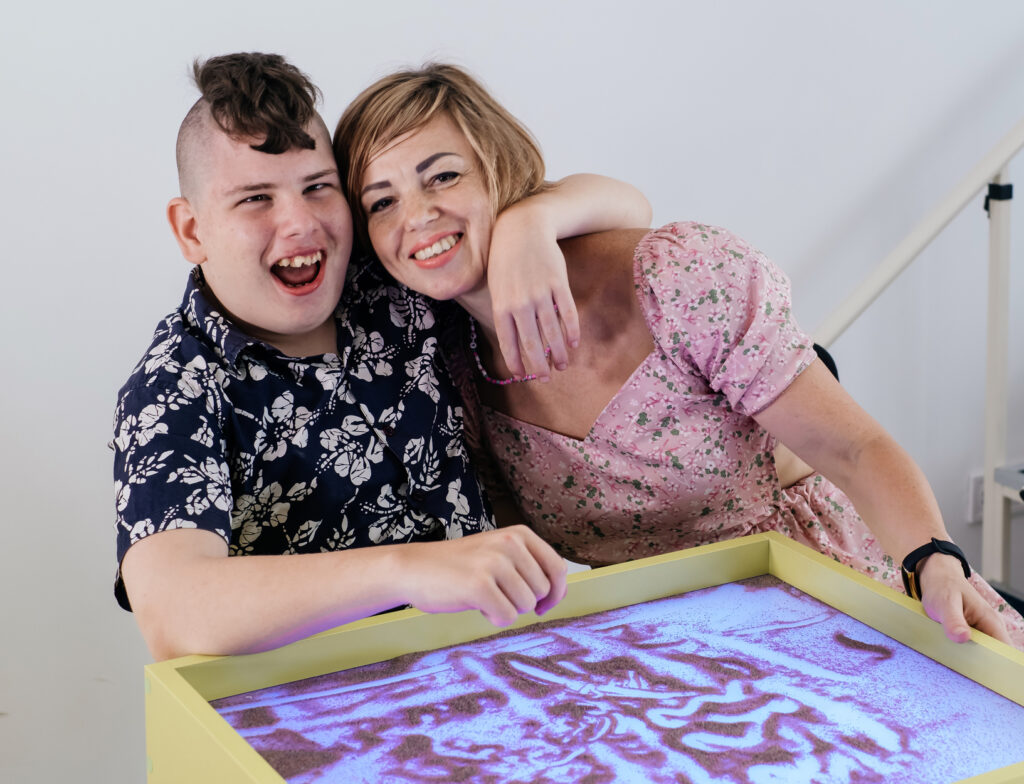The NDIS Review final report has been released. It outlines how the NDIS can work better now and in the future, and makes some big recommendations. So what does it mean for families with children with disability?
We’ve summarised the Review and tried to answer your top questions. But this is just the start, and we’ll keep families updated as we know more.
What does the Review say?
At the heart of the Review are 26 recommendations to increase the amount of support available outside of the NDIS. This would remove the cliff edge between those who get an NDIS plan and those who get nothing. It’s also designed to create a more inclusive Australian community.
The state and federal governments have agreed to create three layers of support:
- Mainstream services to be more inclusive. This includes childcare, kindergartens, schools, healthcare, sport, and recreation.
- Foundational support which is new and would support NDIS participants, families, AND people not eligible for the NDIS. It would include Navigators (see later information), peer support, parent training, allied health, early intervention, and some in-home services like cooking and cleaning.
- NDIS which will continue to provide individual support for children and adults with severe and permanent disability.
Who will be able to access the NDIS?
The Review recommends removing the lists of disability diagnoses that currently give automatic access to the NDIS.
Eligibility would be assessed through a functional needs assessment which would be done by the applicant’s health professional e.g. your child’s paediatrician or GP. The assessment cost would be funded by the government.
Existing NDIS participants would need to meet eligibility under the new functional needs assessment. The Review recommends this doesn’t start for at least two years.
What about autistic children?
We acknowledge that in the lead-up to the Review’s publication, there was a lot of unhelpful media coverage that focused on autistic children in the NDIS.
The NDIS Review report only mentions autism a few times. The recommendations it makes apply to all current and future participants and are not specific to autism or any particular disability.
What are Navigators?
Navigators would replace Early Childhood Partners, Local Area Coordinators, Support Coordinators and Plan Managers.
Navigators would help all people with disability, not just NDIS participants. They would help people find peer support, access foundational supports, and connect with their local community. They would also help people apply for the NDIS and help NDIS participants find services. There would be two tiers of Navigators, including specialist Navigators for people with more complex needs.
What would the planning process look like?
The planning process would start with a meeting with a Needs Assessor from the NDIS. They would assess your child’s support needs and show you the assessment before building an NDIS budget. This means you get to sit down directly with the person making the decisions. Once the budget is set you would work with your Navigator to find the right supports for your child.
Budgets would be based on all your child’s support needs. There would be clearer guidelines on what is reasonable and necessary. The budget would be able to be used flexibly, not according to line-by-line items. For supports like therapists and support workers, you would need to use registered providers. To address shortages in regional and rural Australia the Review recommends setting up provider panels to offer allied health therapy in small and medium-size towns.
Why are these changes recommended?
The Review has made these recommendations to address several issues currently facing the NDIS, and people with disability and their families. The recommendations are designed to:
- Make the NDIS sustainable now and in the future. The Review and the Government is very clear: the NDIS is here to stay
- Drive inclusion of people with disability in mainstream services and the wider community
- Provide layers of support so that more people get the help they need
- Ensure children get evidence-based early intervention. This includes a Lead Practitioner, parent training and peer support, working in partnership with early learning and school.
- Make the system simpler and easier to navigate
The Review recommends that implementation of the changes happens over the next two to five years and that people with disability and their families be involved in the development and testing of changes.
What happens next?
The state and federal governments have agreed to create and co-fund foundational support. The Australian Government will respond to all 26 recommendations in 2024.
If your child is an NDIS participant nothing changes for now. Keep using their NDIS plan.
If your child has emerging developmental delays, talk to your Maternal Child Health Nurse or GP and contact your local Early Childhood Partner.
More information
You can read the full report and factsheets on specific recommendations
Read more News
